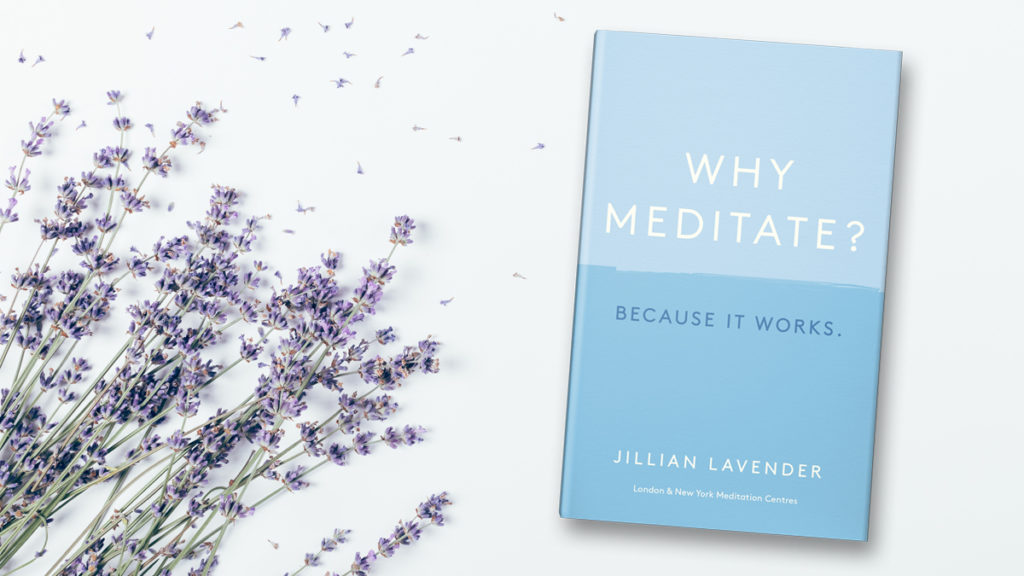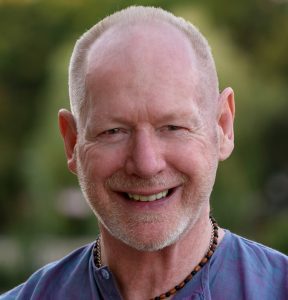Why Meditate?
The extraordinary impact of meditation on my life
It’s September 2021 and we’re just emerging from lockdown in the UK. “Hello,” says Narada in a Dutch accent as his beaming face appears on the Skype screen. Narada sounds just as zen as you would expect from a meditation master.
My path to Narada was slightly convoluted. In episode 175 of my Being Human podcast, I interview Jillian Lavender, author of Why Meditate? Her book caught my attention. For years, I’ve had an interest in mediation. I was first inspired by friend and meditation veteran Shashin Shah. I’d tried to develop a regular habit on many occasions without success.
Enter Jillian’s book Why Meditate? This short, accessible text flipped my attitude for several reasons. Her recommended method – Vedic meditation – requires virtually no effort. You simply sit your arse down in a comfortable chair for twenty minutes. No cramping yourself up cross-legged. No staring at photos of dead gurus. Scratching and coughing are fine.

Secondly, she explains something significant about sleep. In meditation, we enter a state more restful than sleep. She relays how in 1969, researcher Dr John Allison found that your oxygen consumption drops twice as much in meditation than in sleep. Therefore, if it’s rest you’re after, it’s better to prioritise meditation than sleep. Additionally, Jilian claims that meditation improves the quality of the sleep that you do get. This revelation was a breakthrough for me. One of the reasons I could not stick with a mediation practice was that whenever it looked like I was not going to get a full night’s sleep, I’d put sleep first. With two basically nocturnal five-year-old boys, I placed sleep first a lot. It turns out I’d been mistaken.
Thirdly, Jillian gives the lie to common excuses I’ve used not to meditate: ‘running is my meditation’, ‘yoga is my meditation’, or ‘listening to Enya is my meditation’. Doing these things might be relaxing for the mind, but you’re not entering a meditative zone. One can only enter unique meditative states through specific practices.
 I was confident it might work this time and was ready to try mediation again using Jillian’s techniques.
I was confident it might work this time and was ready to try mediation again using Jillian’s techniques.
Except I couldn’t. Jillian was running her meditation course during the COVID period, and her venue insisted everyone wore masks. I wasn’t willing to spend three days trying to meditate in a mask. Luckily, I found Narada offering Vedic meditation courses online. So it was that his beatific phizog greeted me on a bright September morning in 2021.
The few hundred dollars I spent with him is the best singular investment in self-development I’ve ever made (and I’ve spent $ 100k’s over the years). After three sessions, I now have a robust practice. I’ve been meditating twice a day, practically every day since.
Just as Jillian promised, my sleep has improved radically. I seldom wake up at night.
I generally feel much calmer (I still have my moments!) My finances are more stable. My life seems to go more smoothly. I feel more spiritually connected. It’s been a blessing on multiple levels.
Also, my one serious concern about getting into mediation has not manifested. I worried it might interfere with my emotional growth and therapeutic work. I had a therapist once who talked about the risks of ‘spiritual bypass’: the tendency to avoid working on emotional trauma by floating off into meditative ‘la la’ land when the going gets tough. However, I haven’t found this to be a problem. If emotions come up in meditation, I let them rise, and if it feels right, I’ll break off my meditation to fully feel and express what’s there.
In summary, meditation has transformed my life in multiple ways without any adverse effects.
If you’ve ever considered getting into mediation, or maybe you’ve tried other methods and failed in the past, then buy Jillian’s book. Now dive in and book in with Narada online or take a physical course at one of Jillian’s Meditation Centres in either London or New York.
Thank you to Shashin for being a living inspiration for the power of meditation and for nudging me to pen this article.
You can find my interview with Narada here.
